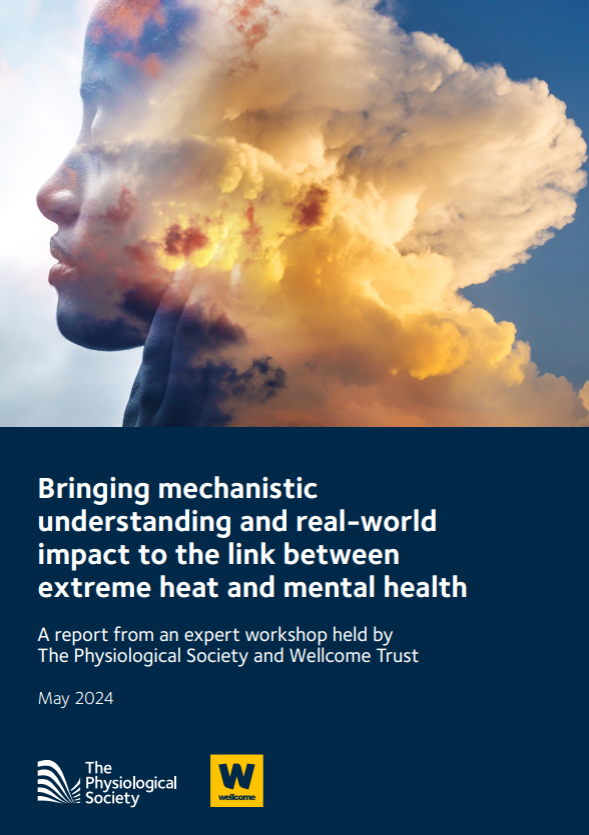Physiology, Heat and Mental Health
Read our workshop report ‘Bringing mechanistic understanding and real-world impact to the link between extreme heat and mental health’
Why do we need to address the link between heat and mental health?
Climate change has been described by the United Nations as ‘the single biggest health threat facing humanity’. Among its many consequences, the increasing frequency and intensity of extreme heat events stand out for their effects on mental health.
Extreme ambient temperatures are associated with worsened mental health outcomes. According to the Intergovernmental Panel on Climate Change’s (IPCC) 2023 report, there is a ‘very high confidence that climate change has already negatively impacted mental health globally’.
While the correlation between heat and some mental health problems is clear, the mechanisms driving these worsened outcomes are under-researched and poorly understood. Similarly, the precise nature of the interaction between biological, psychological and social mechanisms driving mental health problems during periods of high or extreme heat remains unknown.
A lack of global data on the mechanisms underpinning this association are preventing better understanding of how heat affects mental health outcomes in different countries, as well as culturally-appropriate and sustainable interventions that could improve mental health outcomes.
The workshop report:
The Workshop
The Physiological Society and Wellcome held a joint workshop on Thursday 15 February 2024, Bringing mechanistic understanding and real-world impact to the link between extreme heat and mental health. The workshop brought together 80 delegates from over 16 countries around the world, covering topics from current research efforts to understand the interactions between poorer mental health and heat, to government policies that could help to improve the implementation of research insights.
Research specialisms of the delegates that attended the workshop included physiology, mental health, public health, data science, weather modelling as well as representatives of national governments and funders with an interest in this area.
Key Recommendations
Address research gaps
Address research gaps in the understanding of the physiological mechanisms linking heat to poorer mental health outcomes. This includes exploring physiological changes, neurotransmitter involvement, and neuro-developmental impacts
Develop research designs from physiology
Develop research designs from physiology to investigate the mechanisms underpinning the association between heat and mental health problems. A better overall understanding of the mechanistic pathways linking heat to poorer mental health outcomes would enable better prioritisation of research.
Ensure a concerted focus on mental health
Ensure a concerted focus on mental health problems associated with extreme heat in the Global South, particularly low-and middle-income countries (LMICs). Research often neglects regions where most extreme heat events occur and where communities are most vulnerable to its impacts, such as the Global South.
Improve the use of data
Improve the use and integration of existing mental health and weather and climate data. Existing mental health records and weather and climate databases where data are available should be used to study the impact of different heat indices on mental health; these data could inform physiological adaptations to heat and related mental health problems.
Implement simple cooling interventions
Implement simple, cheap and sustainable cooling interventions and evaluate their impacts on mental health. Implementing simple, cheap and low-carbon interventions like using natural ventilation or fans to keep people cool should be promoted widely.
Promote collaboration
Promote collaboration in research design through consortia-based funding models. Funding bodies should focus on achieving a balance between mechanistic research and larger-scale intervention studies.


